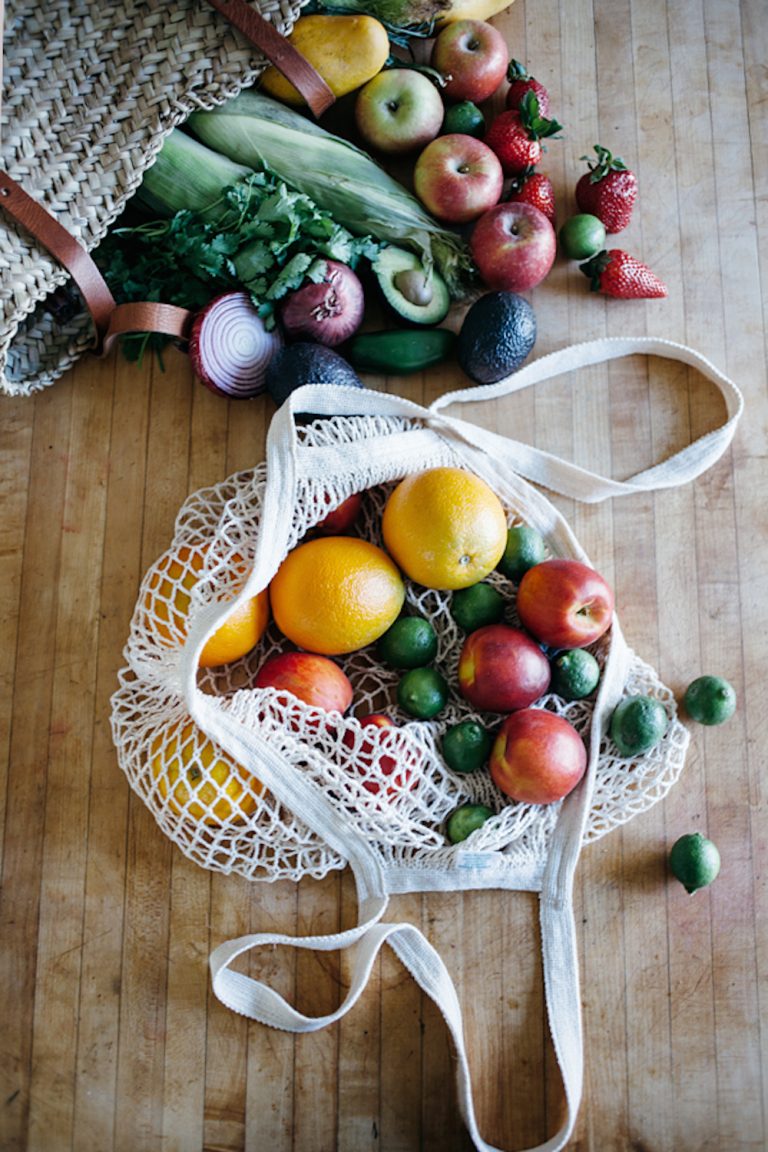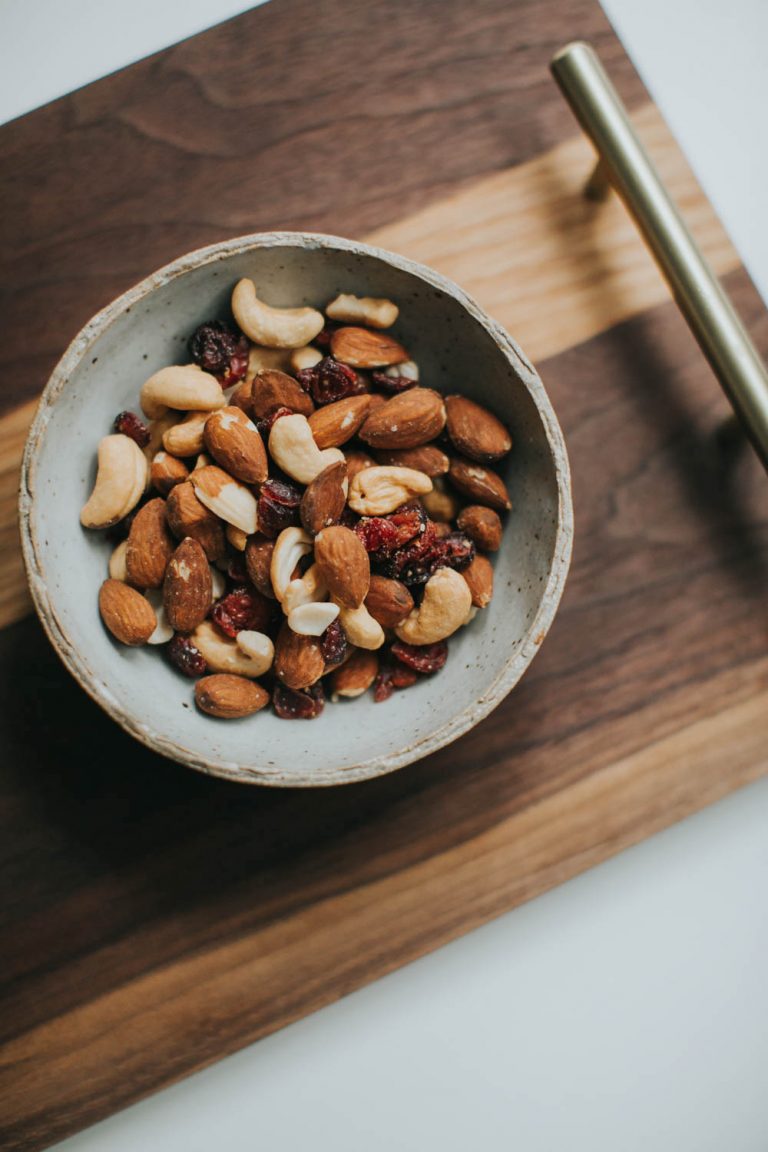A Nutritionist’s 10 All-Time Favorite Foods for Longevity
There’s no time like the present. Now, more than ever, is an opportunity to fuel your body with nutrient-dense foods. Our mantra? New year, evolved you. January is about fresh starts after all, but a fresh start doesn’t require overhauling every aspect of your life. Start small and be practical. There’s no need for polarizing resolutions or restrictive diets. We’re leaving plenty of space for self-compassion this month (and beyond!). After all, it’s about progress, not perfection. Speaking of progress, let’s talk about longevity. The longer we live, the more we can progress, evolve, chase our dreams, and become the best versions of ourselves. But how to expand your longevity? Along with stress management, exercise, and sleep, what we eat can either help or hinder our ability to live a long life. In today’s article, we’re explaining foods for longevity. Here’s to health and vitality in 2022.
How Diet Impacts Longevity
While there are many factors—like family history, lifestyle, and age—that can affect how long you live, there’s no shortage of research to back up the very strong correlation between diet and longevity. It’s true: You are what you eat. Food doesn’t just affect how we function, it impacts every single process inside our cells.
To live long, healthy lives, it’s imperative to eat nutrient-dense foods. These are the foods that provide energy, reduce the risk of illness, and maintain strong, capable bodies. Fresh, colorful produce helps us perform optimally, maintain wellness, and fight disease. When we eat pro-inflammatory foods, however, we’re not supporting our longevity. When we have chronic blood sugar spikes, we’re not supporting our longevity. Heaps of sugar in our coffee? Not exactly supporting longevity.

Eating for Longevity on a Budget
To dispel the rumors, eating healthy on a budget is possible. In fact, it’s easier than you’re led to believe. Different foods cost different prices, yes, but not all healthy food is expensive. On the flip side, not all unhealthy food is cheap. This misunderstanding poses a risk to our overall health and wellness. More on that here.
Said differently: You can eat foods for longevity on a budget. From meal planning to shopping in season to buying frozen produce, there are simple ways to eat healthily and affordably. In fact, the best-of-the-best foods for longevity aren’t expensive adaptogens, powders, etc. They’re whole, colorful foods—spinach, kale, beet greens, berries, beans, and more. Think the Mediterranean diet. All year long, these are the foods that dominate Blue Zone meals.
The Blue Zone Diet
To further knock the myth that eating healthy is expensive, let’s talk about the Blue Zones. What began as a National Geographic expedition to uncover the secrets of longevity evolved into discovering where people consistently live over 100 years old. A few of the Blue Zone cities are Ikaria, Greece, Okinawa, Japan, and the Nicoya Peninsula in Costa Rica. They may not be the wealthiest people in the world (according to GDP), but they have many similarities. Including, what they eat. They consume minimal animal protein, whole grains, fresh vegetables, fruits, olive oil, seeds, and nuts. In other words, economical food.

How to Increase Your Longevity Through Food
Considering those who live in the Blue Zones are living proof of longevity, we want to follow suit. They eat anti-aging foods and practice healthy dietary habits. Longevity experts agree. Eating more fruits, vegetables, whole grains, legumes, nuts and seeds, and good amounts of omega-3s (from fish, nuts, seeds, or algae), while minimizing refined carbohydrates will not only improve your odds of living more healthfully, but it will likely add more years to your life, too. Ultimately, if you want to live longer and be healthier, you have to fuel your body with nutrient-dense foods.

10 Foods to Eat for Longevity
Foods for longevity are fridge and pantry staples so load up on these 10 ingredients to create wholesome, anti-aging meals.
Berries
This goes without saying, but regular consumption of fruits and vegetables is associated with greater longevity. A recent meta-analysis found that for every 200-gram (or 7-ounce) increase in fruits and vegetables per day, participants enjoyed a 10% lower risk of premature death. The better news? Maximum benefit was seen at 800 grams (or 28 ounces) per day—a 31% lower risk of premature death—with foods including berries. Furthermore, in two different models of aging, blueberries have been shown to extend life span. Blueberries contain specific flavonoid molecules that fight DNA damage and slow age-related damage to brain cells. Aim for 1 cup of berries per day.
Chia Seeds
Chia seeds contain key nutrients like fiber, protein, and omega-3 fatty acids and can improve heart and bone health. And a healthy heart, plus healthy bones, equates to longevity. Fiber, in particular, is important for living a long life. Those who add more fiber to their diet also add more years to their lives. In fact, a 2014 meta-analysis including over 1.7 million participants showed that for every 10-gram increase in fiber per day, the risk of premature death was lowered by 11%. However, the average American is only eating 16 grams of fiber per day (the daily target should be 28-38 grams per day). The best place to get more fiber? Through a wide variety of whole, plant foods. Aim to add one to two tablespoons of chia seeds or ground flaxseed to your daily yogurt bowl, low-sugar cereal, salad, or smoothie.
Legumes
Beans, peas, lentils, peanuts, and chickpeas are excellent sources of fiber and plant-based protein to stabilize blood sugar. They also help nourish a healthy microbiome. In essence, a healthy gut microbiome is known to help regulate inflammation, lower cholesterol, and regulate immune function. All of these support longevity. Aim to include at least five servings (½ cup – 1 cup) of legumes in your diet, weekly.
Cruciferous Vegetables
Cruciferous veggies are vegetable powerhouses. They have the unique ability to modify human hormones, activate the body’s natural detoxification system, and inhibit the growth of cancerous cells. In fact, the cruciferous phytochemical, sulforaphane, has been found to protect blood vessel walls from inflammatory signaling that can lead to heart disease. Cruciferous vegetables are incredibly nutrient-dense. Eat a variety in both raw (if you can tolerate them) and cooked, daily—broccoli, cauliflower, Brussels sprouts, kale, cabbage, etc. Aim for 1 cup per day.
Leafy Greens
Leafy green vegetables—arugula, spinach, bok choy, collard greens, romaine lettuce, etc.—are associated with reduced risk of heart attack, stroke, diabetes, and several cancers. Leafy greens are also rich in the essential B-vitamin folate plus lutein and zeaxanthin, carotenoids that protect the eyes from light damage. To maximize the health benefits of leafy greens, eat them with a source of healthy fats (extra-virgin olive oil, avocado, nuts, seeds, etc.). Aim for at least 1 cup of leafy greens per day.
Walnuts
Nuts are a high-nutrient source of healthful fats, plant protein, fiber, antioxidants, minerals, and more. They’re also low-glycemic, aiding in blood sugar balance. Despite their caloric density, nut consumption is associated with lower body weight, potentially due to appetite suppression from heart-healthy components. Aim to eat two modest handfuls of nuts per day. Almonds are high in vitamin E and magnesium, Brazil nuts are high in selenium, and walnuts are high in alpha-linolenic acid ( the only omega-3 fat found in a plant-based food). In fact, this study found that eating five or more servings of walnuts per week was associated with a 14% lower risk of death (from any cause), a 25% lower risk of dying from cardiovascular diseases, and a gain of about 1.3 years of life expectancy.
Turmeric
This golden spice has been shown to provide a myriad of health benefits, including preventing heart disease, Alzheimer’s, and cancer, as well as warding off depression and arthritis. Curcumin—the active ingredient in turmeric—is what gives this super-spice its inflammation-fighting powers. Add turmeric to everything from eggs and roasted veggies to soups and smoothies. Aim for upwards of 1 teaspoon per day.
Sweet Potatoes
Okinawans, part of the Blue Zones, are known for living long, healthy lives. One secret to their longevity? Sweet potatoes. They’re loaded with vitamin A, potassium, and fiber. Okinawans consume less rice and more sweet potatoes than typical Japanese, and this key difference in their diets is believed to play a role in why Okinawans outlive other Japanese people. Aim to eat 1.5-2.5 cups of sweet potato per week.
Mushrooms
Mushrooms have quite an array of beneficial properties. Studies on different types of mushrooms have found anti-inflammatory effects, enhanced immune cell activity, prevention of DNA damage, slowed cancer cell growth, and angiogenesis inhibition. They are also a wonderful source of nutrients, particularly vitamin D, scoring a healthy dose of anti-aging benefits. Aim for 1.5 to 2.5 cups of mushrooms per week.
Garlic
Onions, garlic, chives, leeks, and shallots do more than just impart a flavorful boost to your dishes. These flowering plants (alliums) contain a compound that aids the body’s detoxification process. One study suggests that a diet with onions and garlic can help decrease your risk for disease. Add minced garlic and onions to your stir-fries, salads, and soups to reap their disease-fighting benefits. Aim for one garlic clove (or upwards of 1/4 cup of other alliums) per day.
5 Recipes With Foods for Longevity
Eat your way to a longer life with these delicious, wholesome recipes.
Lemony Roasted Broccoli, Arugula, and Lentil Salad by Cookie + Kate
This healthy salad features tender roasted broccoli and Brussels sprouts, protein-rich lentils, fresh arugula, and grated Parmesan tossed in a simple lemon dressing. Eat this as an entree or side. Either way, it’s incredibly flavorful and delicious.
Best Veggie Burger Recipe by Love & Lemons
Made with longevity superstars, like mushrooms, ground flax, brown rice, and walnuts, these are the ultimate veggie burgers. Packed with hearty ingredients and a rich umami flavor, you won’t miss the meat.
The refreshing, citrus-packed salad you didn’t know you needed. Pairing juicy oranges and the subtle licorice essence of fennel with a citrus vinaigrette, it’s a light yet flavorful salad to boost your longevity.
Golden Milk Latte Chia Pudding by Choosing Chia
This golden milk latte chia pudding makes a healthy breakfast, snack, or dessert. It’s made with spices like turmeric, ginger, and cinnamon. It’s a healthy recipe that is naturally gluten-free, grain-free, and vegan. Eating for longevity never tasted so sweet.
Spicy Stuffed Sweet Potatoes
The delicious combination of taco-inspired fillings makes these sweet potatoes packed full of flavor. Just let the beans simmer on the stove while the sweet potatoes are cooking, then add toppings, and dinner is served. Meal prep these over the weekend, then gently rewarm them in the oven when it’s time to eat. Dinner is served.
